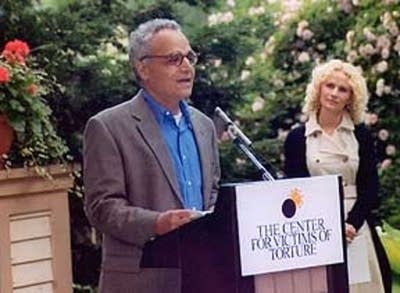Don't underestimate the power of cheese
Go Deeper.
Create an account or log in to save stories.
Like this?
Thanks for liking this story! We have added it to a list of your favorite stories.

By Ahmed Tharwat
Arab-Americans in tough times seek comfort and refuge in the warmth of their ethnic foods. As their nomadic ancestors did in the desert for hundreds of years before them, they carry their food wherever they go to sustain them in an inhospitable terrain.
Ah ... the sizzle of frying falafel. The rich aroma of shaworma. The smooth flavor of baba ghannou and hummus, the beauty of artfully displayed meza and the heavy sweetness of baklava -- all take us back to the comfort and security of our home. But no other Middle Eastern food so reflects our ethnicity and identity as feta cheese.
We have as many different kinds of feta as nationalities: Egyptian, Greek, Lebanese, Moroccan and Palestinian. We try them all. So if you want to measure the Arab American melting pot in the United States, don't look at the employment or housing index. Look instead at the consumption of feta and its ratio to the consumption of American cheese.
Turn Up Your Support
MPR News helps you turn down the noise and build shared understanding. Turn up your support for this public resource and keep trusted journalism accessible to all.
Americans seem to treat cheese as dead food that is wrapped in plastic bags and kept in the refrigerator like corpses, while Arabs like to treat cheese like fresh meat that should be cut before your eyes and kept in the open for everyone to see and smell. Egyptians never throw their feta away; there is really no such thing as expiration date. When it gets old, it is just renamed! Cheese starts with a name like areesh, when it gets mushy it is creemy, then brameely, and when you can't stand its rotten smell, it is mish. They say that there are more people in Egypt who die from eating bad feta than from gunshots.
Feta enjoys a prominent culinary status in our house. Every morning at breakfast I prepare the Egyptian breakfast trio of feta cheese, pita bread and black olives for my daughter. At first, she enjoyed eating it as much as listening to stories of my Egyptian boyhood. Then she became a teen and I had to quietly sneak feta into her breakfast sandwich under the cover of American cheese.
I understand her feelings. When I was a youngster growing up in an Egyptian village in the '60s, our school used to get American aid in the form of a big block of wrapped cheese. I was fascinated by its different taste and color, not to mention its glossy plastic wrapping. Under protest from my resentful parents, I deserted my ethnic feta cheese and in its place I demanded the colorful American cheese, as flashy as American movies. To village attitudes, rejecting your feta was like rejecting your identity.
Today, my wife and I take care not to bring this culinary conflict into our home. We want to reinforce our daughter's multicultural heritage, so we let American cheese and feta cheese coexist peacefully on our breakfast table. I say nothing of her infidel cheese. And my wife, who dislikes the smell of feta, stops short of charging me with chemical warfare.
---
Ahmed Tharwat, Minnetonka, is host of the Arab American TV show "Belahdan."
Dear reader,
Political debates with family or friends can get heated. But what if there was a way to handle them better?
You can learn how to have civil political conversations with our new e-book!
Download our free e-book, Talking Sense: Have Hard Political Conversations, Better, and learn how to talk without the tension.




